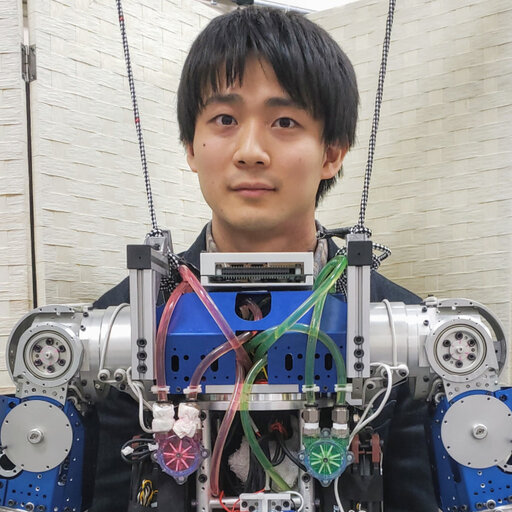Kunio Kojima
Biography:
Kunio Kojima is a lecturer at JSK Lab, the Graduate School of Information Science and Technology, University of Tokyo, since 2021. He received the B.S. degree in mechanical engineering, the M.S degree in mechano-informatics, and Ph.D. degree in Interdisciplinary Information Studies from the University of Tokyo, Japan, in 2012, 2014, and 2018, respectively. Prior to his current position, he was a project research associate and a research associate.
His research focuses on the mechanical design of humanoid robot structures and the planning and control of dynamic whole-body motions.
Abstract
Endowing humanoid robots with natural, versatile, and robust whole-body motion behaviors, similar to those of human beings, remains a persistent challenge due to the complexity of control and intricacies in motion design. While numerous studies based on simplified models and optimal control have shown promising performance in structured motion paradigms, reinforcement learning-based control has recently emerged as a compelling alternative for whole-body control. In this talk, we will first reflect on our previous efforts in model-based control for whole-body humanoid behaviors such as dance and dynamic swing motions. Subsequently, we will introduce our recent Wasserstein adversarial imitation learning framework. Leveraging the power of both reinforcement learning and human motion data, this system enables humanoid robots to demonstrate a wide range of natural whole-body locomotion patterns and execute seamless transitions, including standing, push-recovery, squat walking, human-like straight-leg walking, and dynamic running with a single learned controller. Finally, we endeavor to provide a brief open discussion on integrating both types of control approaches to enhance whole-body control for humanoids.
